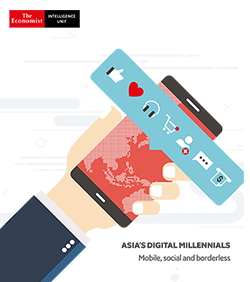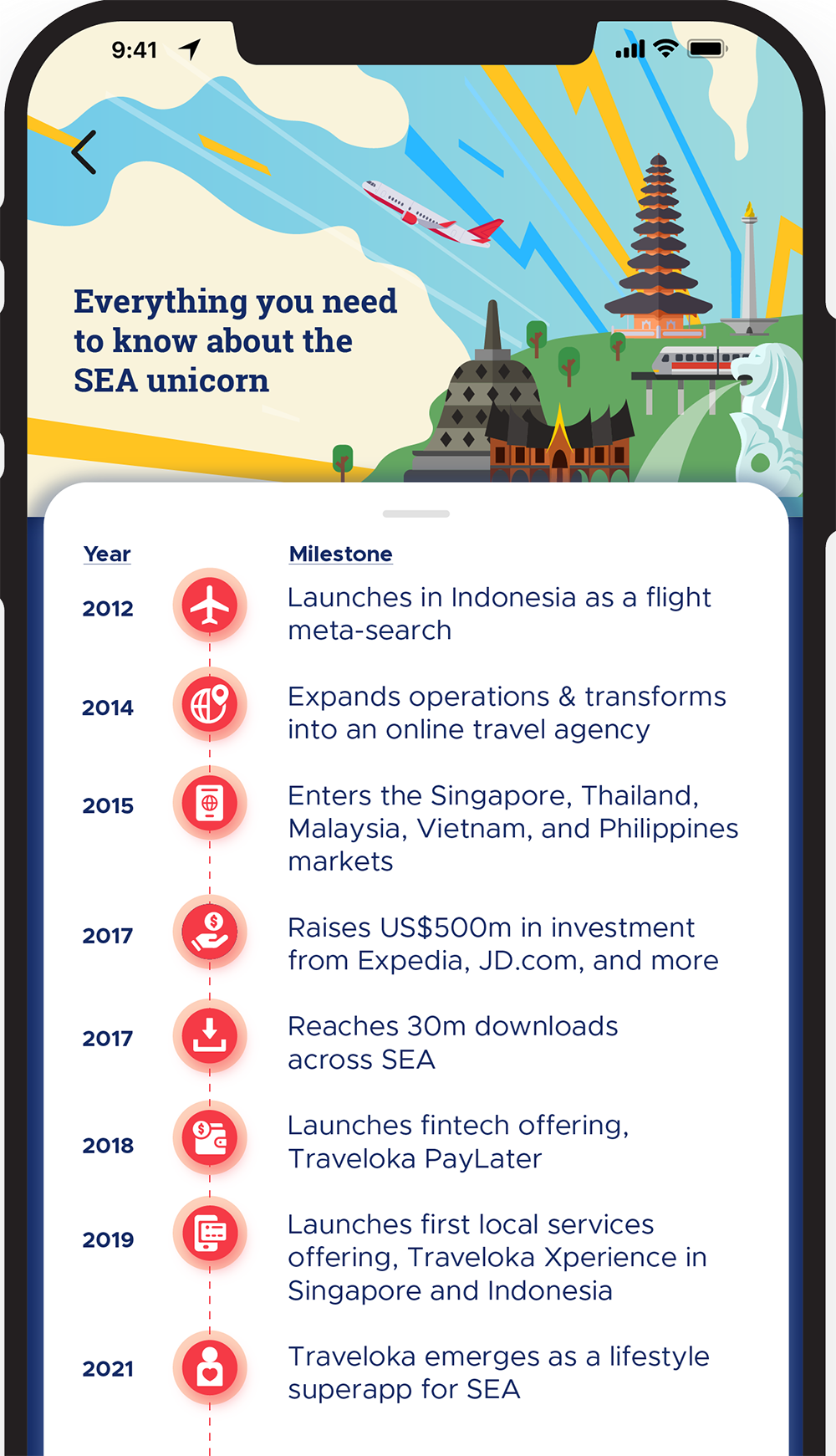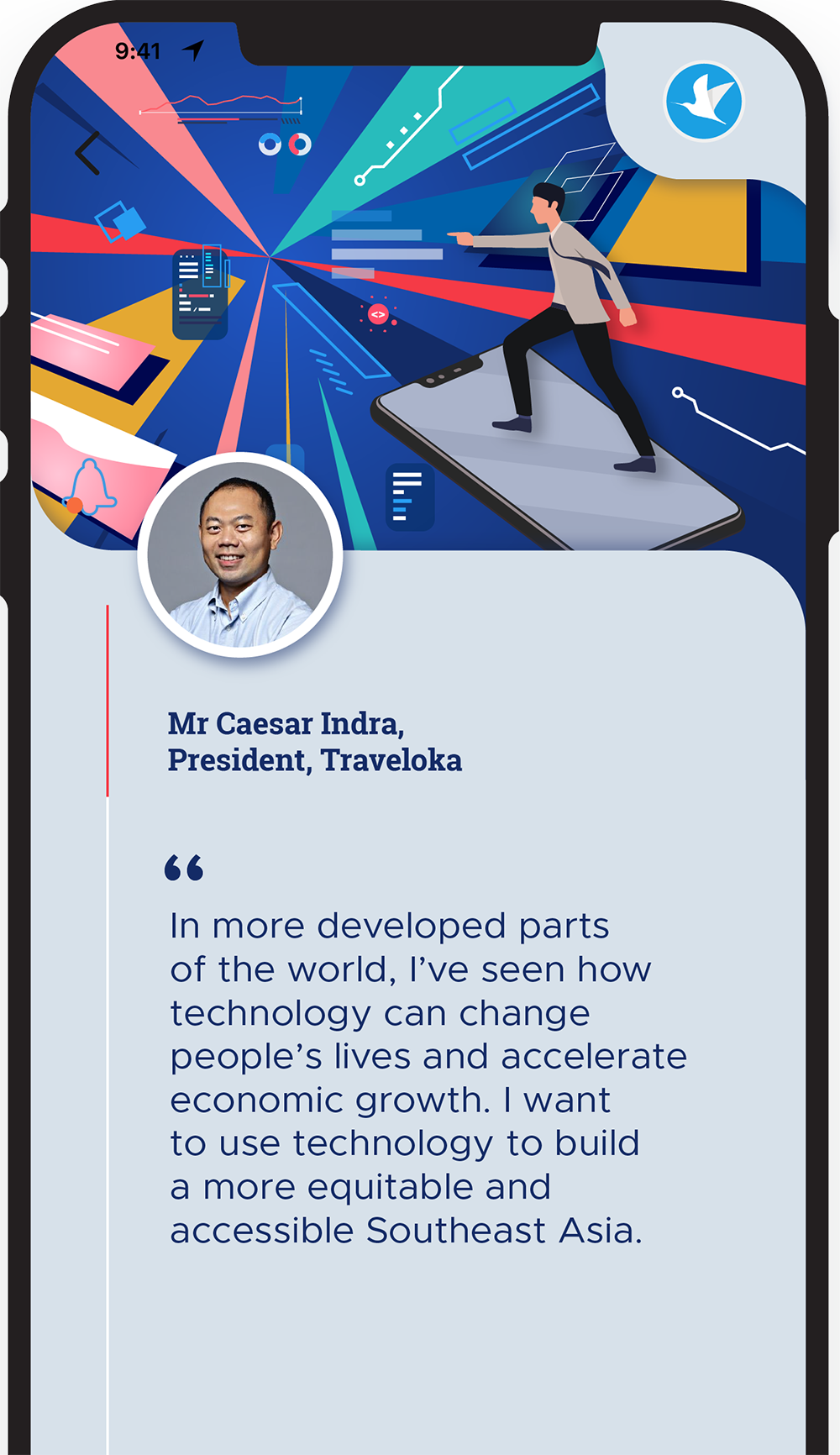Who are Asia’s digital millennials?
Understand your consumers in this report by EDB and the Economist Intelligence Unit.
The Indonesian tech unicorn shares how Singapore as a globally connected tech hub is a critical node for its regional operations, as it expands from an online travel agency to a lifestyle super-app.

From the skyscrapers of Bangkok to the bustling markets of Yogyakarta, Southeast Asians are going digital. 40 million people came online for the first time in 2020 alone. They shop for batik and bitcoin, attend meetings, and start new businesses online. And if they’re not already doing all that, they soon will.
Traveloka is one such regional trailblazer meeting the boom in demand for digital services. A tech unicorn valued at US$3 billion (S$4 billion), it has transformed in under ten years from its roots as an online travel agency (OTA).
This year, the company looks set to become Southeast Asia’s (SEA) latest lifestyle super-app.
“We see this region as an exciting market: a rapidly growing region with a digitally engaged and highly aspirational middle class that is currently underserved,” says Traveloka’s President Caesar Indra.
As the Indonesian company is proving, there are few better places in the world to be a tech pioneer than SEA.

Understand your consumers in this report by EDB and the Economist Intelligence Unit.

While the pandemic has challenged Traveloka’s travel business, it has also spurred demand for digital lifestyle solutions — and a chance for Traveloka to expand into serving customers across travel, local and financial services.
The company taps data analytics to understand the evolving needs of consumers, pivoting to new business verticals and adjusting operating models in near real-time. Its Singapore-based tech team, working in tandem with teams across the region, has been essential in driving this agility.
“The biggest advantage to having an office in Singapore is access to a world-class tech talent pool. We also made the decision to invest here due to Singapore’s strong digital infrastructure.”

Caesar Indra
President
Traveloka
The Singapore team draws on expertise in data science, cybersecurity, and cloud-native architecture. Bringing together data insights across SEA, they formulate new solutions based on emerging demand. These real-time insights support regional teams in rolling out and localising new interventions.
Traveloka is also “stress testing” its local services offerings in Singapore. One example is Traveloka Xperience, which allows customers to make bookings such as attractions, healthcare, transport and food, was first launched in Indonesia and Singapore. It has since been expanded to Australia, Malaysia, the Philippines, Thailand, and Vietnam.
Mr Indra explains that as Singapore is the most popular destination for Southeast Asian travellers, exposure to Traveloka’s local services products while in Singapore creates a positive ripple effect, as it starts to launch these products in other SEA markets.
The company is plugged into a network of ready partners that facilitate growth into new markets from Singapore. The city-state is home to 59 per cent of Asia regional headquarters for tech multinational companies.
“Singapore is also a place to bring people together that helps us to stay connected to the rest of the world. Given its strategic location, Singapore enables us to network with high-quality strategic partners.”

Caesar Indra
President
Traveloka
Traveloka is also growing fast in the fintech space. The company’s financial solutions build upon know-how honed as an OTA, such as providing seamless travel transactions and tapping unique user data.
Together with trust earned over the years and an understanding of each market’s pain points, Traveloka’s roots as an OTA offer an edge in offering financial products that are localised for each market, says Mr Indra.
24 per cent of SEA is underbanked, lacking full access to traditional financial services, such as banking, lending and insurance. With an eye to serve this group, Traveloka provides more than 40 payment options and financial services.
The Singapore team’s expertise is tapped on to build new solutions such as a personalisation platform that offers customised financial services products, and continuous improvement of an anti-fraud system to tackle issues such as payment fraud, lending fraud, and user fraud.
Notably, the team also enhanced lending capabilities on Traveloka’s credit service PayLater. “As demand for online transactions increased during the pandemic, our financial services products became increasingly important as a powerful enabler for customers and small businesses across Southeast Asia,” says Mr Indra.
Hear more from Traveloka President Caesar Indra, as well as GoTo President Patrick Cao on how the region’s key players are riding the fintech growth.

Post-COVID, Traveloka has plans to tackle the changed nature of travel, leisure, and life in the region. Supporting the roll-out of vaccination programmes in Indonesia, domestic tourism programmes in Singapore, and welfare outreach in Thailand are some diverse examples of how it is working alongside relevant stakeholders in each market.
Through it all, Traveloka’s Singapore office remains a key node in the region for doing business in SEA and beyond.
Mr Indra says: “Moving forward, we believe Singapore will strengthen our presence in Southeast Asia and beyond through its global access to talents, robust digital infrastructure, and strong international network.”